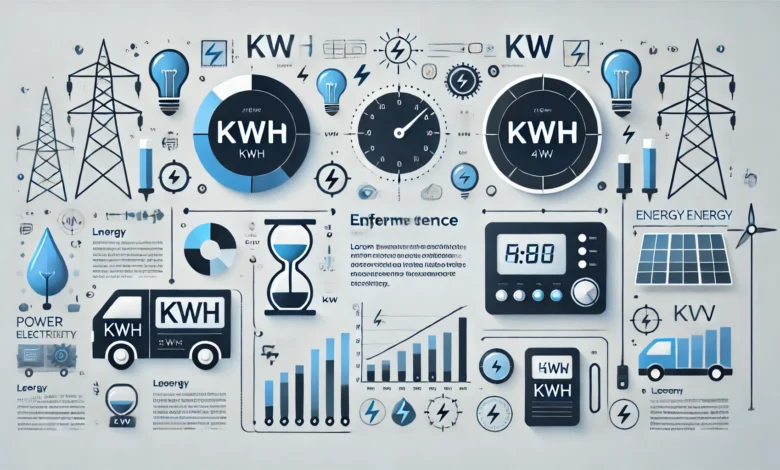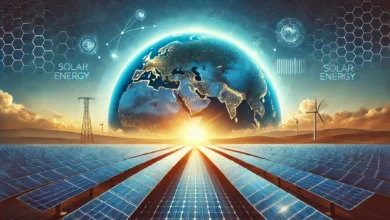kW vs. kWh What’s the Real Difference?

Knowing the difference between kW and kWh is essential when working with electricity. While the names are similar, the two measurements are entirely different. If you’re planning on installing solar panels, calculating your energy bills, or just exploring other battery storage opportunities, knowing and understanding the difference between kW and kWh will help you be less confused and ultimately save you some money. Let’s dive into this.
Contents
What is a Kilowatt (kW)?
A kilowatt (kW) is a measurement of the rate of energy consumption or generation at a single moment in time, often referred to as power. A kilowatt is a unit of power that represents 1,000 watts. If you hear that something is a 2 kW appliance, this means that this appliance is consuming 2 kilowatts of power while operating.
Example: A 2 kW heater will consume 2 kilowatts of power for every hour that it runs at max capacity.
What is a Kilowatt Hour (kWh)?
A kilowatt-hour (kWh) is a measurement of energy that has been consumed or generated in a specific amount of time. This means that this tells you how much power was consumed in a specific amount of time (typically an hour). Your electric bill is calculated based on how many kWh you used.
Example: If your 2 kW heater is running for 3 hours, you consumed 6 kWh (2 kW × 3 hours = 6 kWh).
kW vs. kWh Comparison Table
| Aspect | kW | kWh |
|---|---|---|
| Definition | Instantaneous power | Energy consumed over time |
| Measurement | Rate of energy usage/production | Total energy used or generated |
| Units | 1 kW = 1,000 watts | 1 kWh = 1 kW used for 1 hour |
| Application | Equipment and appliance ratings | Electric bills and energy tracking |
| Example | Solar panel capacity, engine output | Monthly electricity usage |
Real Life Examples of kW and kWh
Solar Systems
Solar panels are rated in kilowatts. For example, a 5 kW solar system can produce anywhere from about 20 to 30 kWh of energy on a sunny day, depending on things like location and conditions. (You can read more about how much energy solar can create for you.)
Home Appliances
A typical refrigerator may consume only 150–200 watts (0.15–0.2 kW). If we assume it runs for 24 hours a day, that would be about 3.6–4.8 kWh a day.
Electric Vehicles (EVs)
Electric cars list consumption in kWh per 100 miles. The average consumption of a Tesla Model 3 is listed as about 24 kWh/100 miles, allowing you to know how much of the stored energy you’re using.
Why Understanding How to Distinguish Matters
Energy Costs: Many people assume they will be billed for energy use in kW, when in fact they are charged based on kWh consumed. Understanding how to track your consumption can lead to significant savings in energy costs.
System Sizing: When sizing a solar system for installation, being aware of how much kWh you are using will inform you on how you can appropriately size your kW system.
Energy Efficiency: Understanding the kW rating of appliances helps you paint the picture of energy usage and make an informed decision on purchases moving forward.
Frequently Asked Questions (FAQ)
Is kW bigger than kWh?
No. They each measure different things. kW is an instantaneous measure of the energy consumption rate, while kWh provides the measurement of the total amount used over a period of time.
Why do electric bills charge in kWh?
Electricity providers keep track of how much energy you consume over time, not how much energy you are consuming at that moment; therefore they charge by kWh used.
How many kW are in a kWh?
They are not directly interchangeable. 1 kW of power used for 1 hour equals 1 kWh of energy.
How does solar panel sizing use kW and kWh?
Solar panels are rated in kW (capacity) however, the amount of energy produced over the day is referenced in kWh.
Can you convert kW to kWh?
You can, but you can also create an equation with time as a factor: Energy (kWh) = Power (kW) × Time (hours).
Knowing the difference between kW and kWh makes energy decisions more informed, whether you are contemplating investing in home energy systems, budgeting your electric use, or embracing technology in Greener Energy. In a time when energy efficiency is heralded as the “wake up, look up, and go up” front for your energy education, knowledge is power! And in this case, it is true, knowledge equals energy!



